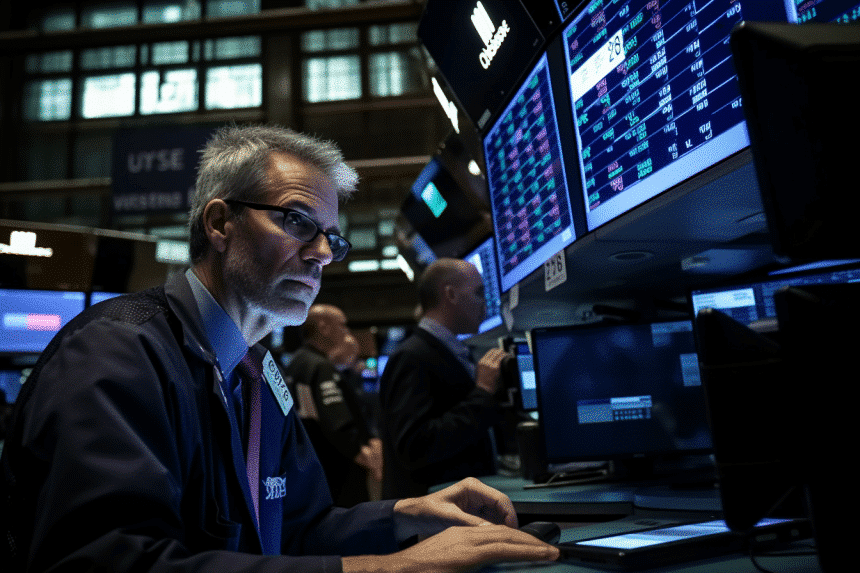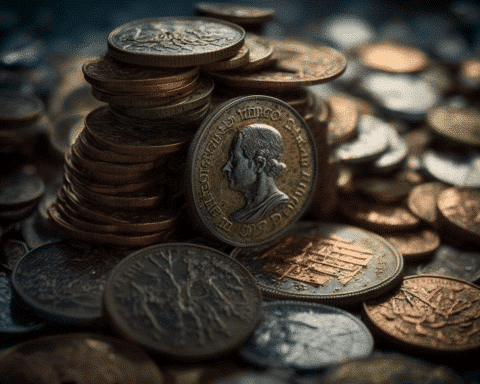The downgrade of the United States’ long-term credit rating by Fitch Ratings sent global stock markets into a slump on Wednesday, yet leading economists maintain a composed stance.
Fitch, a global rating agency, revealed that the U.S. long-term foreign-currency issuer default rating had been lowered to AA+ from AAA. The downgrade was triggered by an anticipated fiscal decline over the next three years, an erosion of governance due to repeated political stalemates over the debt limit, and a progressively increasing debt load.
Post-downgrade, U.S. stock futures took a sharp hit, hinting at a nearly 300-point drop for the Dow Jones Industrial Average at the opening of Wall Street on Wednesday. The pan-European Stoxx 600 index declined by 1.6% by mid-morning in London, with all sectors and major bourses plummeting. Stocks in Asia-Pacific followed suit with a widespread decline.
Prominent economists such as former U.S. Treasury Secretary Larry Summers, Allianz Chief Economic Advisor Mohamed El-Erian, and current Treasury Secretary Janet Yellen criticized Fitch’s decision. Summers referred to it as “bizarre and inept,” while El-Erian was “perplexed” by the timing and rationale. Yellen labelled the downgrade as “outdated.”
Alec Phillips, Chief Political Economist at Goldman Sachs, noted that the decision was not based on new fiscal data and is unlikely to cause a long-term impact on market sentiment beyond the immediate sell-off on Wednesday. Phillips added that the downgrade was unlikely to compel major Treasury security holders to sell based on the rating change.
Even though it was the first downgrade of this kind since 1994, Phillips reminded that the S&P’s downgrade of the U.S. sovereign rating in 2011, despite negatively impacting market sentiment, did not prompt forced selling. The S&P 500 index recovered 15% in the subsequent 12 months.
Wells Fargo Securities’ Head of Equity Strategy, Chris Harvey, concurred that the impact of Fitch’s downgrade wouldn’t mirror the aftereffects of S&P’s 2011 downgrade. Harvey foresees any stock pullback to be “relatively short and shallow.”
However, veteran investor Mark Mobius expressed that the downgrade could prompt investors to reconsider their strategies regarding U.S. debt and currency markets. Despite forecasting continued growth of U.S. stock markets alongside global counterparts, he advised possible diversification of holdings away from the U.S. and towards equities.
Virginie Maisonneuve, Global CIO of equity at Allianz Global Investors, stressed the need for the market to consider other potential triggers for a more prolonged downturn. She emphasized the maintained investment grade of the Fitch decision, asserting that the markets need to focus on future trends rather than past reflections.
Despite the immediate market reaction to Fitch’s decision, prominent economists and market strategists advise investors to look past the initial shock. They argue that the significant downgrade doesn’t bring any new fiscal information to light and, therefore, should not cause a sustained disruption in the market. Nevertheless, the event has sparked conversations about the importance of diversification. It has made investors vigilant of other potential triggers that could usher in a more prolonged downturn in the market.




